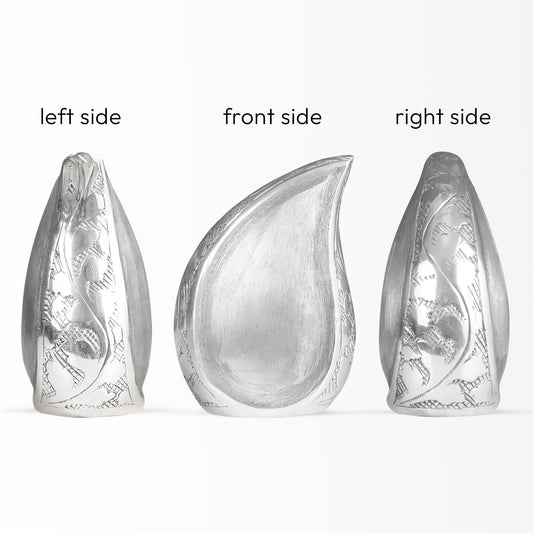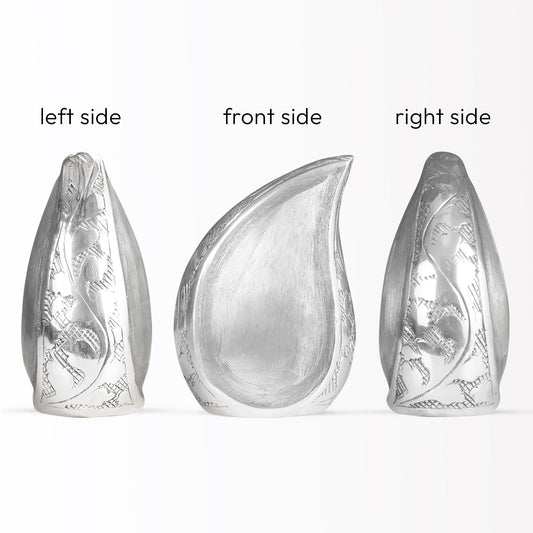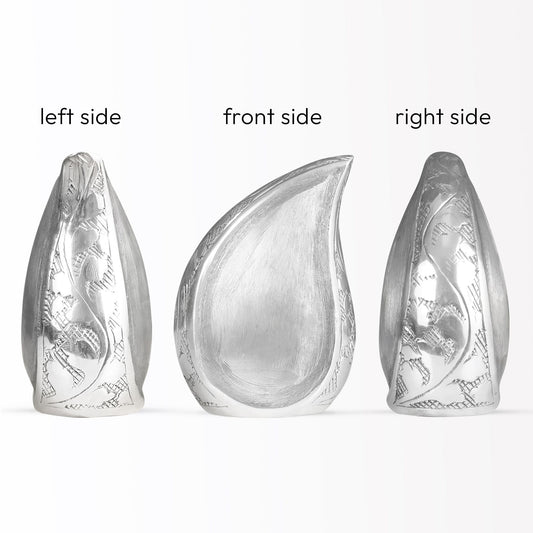Popular Urns
Who has the Right to Ashes After Cremation

Many families prefer to cremate the body of their loved one. It involves the separation of remains from a casket to transportation at a crematory, cleaning, and the preparation of a body for cremation.
Then, the body is placed in an advanced cremation chamber, which is designed to be heated at very high temperatures and consume everything apart from the bones of the human body. Once the bones have been picked out, the remains can be stored in a cremation urn. These urns are used by families in their home or taken on special journeys.
Who will have the legal right to deal with the ashes is one of the major decisions that have to be made immediately after cremation. This, in many circumstances, can be a highly sensitive and emotional issue, because it possesses the last remains of a dearly departed one. We discuss the legal rights of cremation, probable disputes over such rights, and how to solve them below.
Who has the legal rights of cremation:
Cremation, being a devolved process, is governed by state-specific laws in controlling cremation legal rights within the United States. In every state, there are varying cremation laws and rules that all the parties concerned must, therewith, realize, to be appropriately enlightened about legal rights individually.
Ideally, he has the right to determine where the ashes are to be scattered or buried after cremation. The right may be vested in his "next of kin" through the directive of the dead. Ordinarily, this would be a spouse, overage children, or close relatives. The actual laws, however, do vary from state to state. It's smart to get advice from an attorney so you know the laws in your state.
What can be the potential reasons of Cremation Conflict:
The holding of all statutory rights by next of kin is still considered potential to lead to conflicts in regard to cremation rights. Family conflict, financial strain, or even disagreements regarding final disposition can all be causes of conflict.
An example of one such common area where conflict arises is regarding who would make the final decision about what would happen with the ashes. For example, they may wish to keep the ashes at home whilst one of the adult children may wish to take them somewhere very special, or a particular journey. There are definite needs for open and honest communications with family members to result in a happy conclusion for everyone involved in such matters.
Another common area of conflict is who is going to pay for cremation and other associated expenses, as these are definitely not cheap doings. Thus, finances are best discussed with family members in advance to prevent miscommunication that could lead to a possible conflict.
There are also some families who have different beliefs with regards to the final rest of the remains, such as whether the ashes are to be buried or scattered in a special location; in these cases, respect for each other's beliefs should be taken into consideration, and a solution acceptable to all has to be found.
How to solve such conflicts:
Pre-need discussions, open and honest with family members, should be encouraged to avert the disputes over the cremation right. More specifically, this could concern questions of next-of-kin rights under the law and concrete wishes of the deceased and the family as a whole.
It is also important to have clarity within the family about what exactly will happen to the ashes. This could be something like having one specific person take care of them or all discussions of the final disposition being something amongst family members.
In the event that this becomes a bone of contention, for every reason possible, an attorney might actually be required. The lawyer will aid in all the legal procedures, while at the same time ensuring that the next of kin are not short-changed in any way. Lawyers could also assist in the mediation process of these disputes and arrive at a concord.
Conclusion:
Many families prefer cremation as the most common way to remember their loved one. However, at the same time, matters concerning legal rights to cremation and disposition of ashes are usually sensitive and highly emotional. All legal rights of the next of kin should be known, and discussion with family members should be open and honest to help foreclose any possible disputes and ensure that final disposition is conducted in accord with the wishes of the deceased and the family as a whole.
ALSO READ:
How To Save Money on Funeral Expenses
How To Pre-Plan Your Own Funeral

























































































